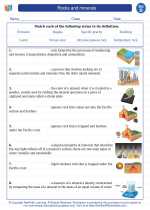Earthquake
An earthquake is the shaking of the surface of the Earth resulting from a sudden release of energy in the Earth's lithosphere that creates seismic waves. This release of energy is caused by the movement of the Earth's tectonic plates.
Causes of Earthquakes
Earthquakes are caused by the sudden release of energy in the Earth's crust. This can be due to the movement of tectonic plates, volcanic activity, or human activities such as mining or reservoir-induced seismicity.
Effects of Earthquakes
Earthquakes can have devastating effects, including ground shaking, tsunamis, landslides, and structural damage to buildings and infrastructure. They can also cause loss of life and injury to humans and animals.
Measuring Earthquakes
Earthquakes are measured using instruments called seismographs, which record the seismic waves produced by the earthquake. The magnitude of an earthquake is measured using the Richter scale or the moment magnitude scale, which quantifies the energy released by the earthquake.
Earthquake Preparedness
It is important to be prepared for earthquakes by having an emergency plan in place, securing heavy items in buildings, and knowing how to drop, cover, and hold on during an earthquake. It is also important to have emergency supplies such as food, water, and first aid kits readily available.
Study Guide
- What causes earthquakes?
- Describe the effects of earthquakes.
- How are earthquakes measured?
- What are some important steps for earthquake preparedness?
[Earthquake] Related Worksheets and Study Guides:
.◂Science Worksheets and Study Guides Fourth Grade. Rocks and minerals
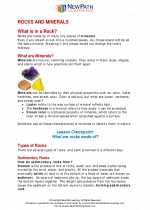
 Activity Lesson
Activity Lesson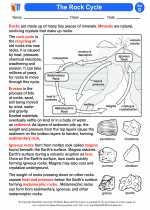
 Worksheet/Answer key
Worksheet/Answer key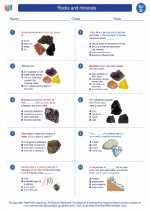
 Worksheet/Answer key
Worksheet/Answer key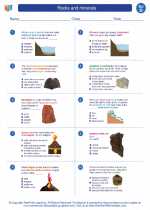
 Worksheet/Answer key
Worksheet/Answer key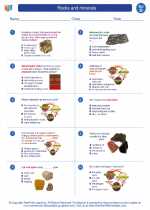
 Worksheet/Answer key
Worksheet/Answer key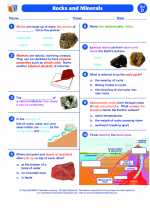
 Vocabulary/Answer key
Vocabulary/Answer key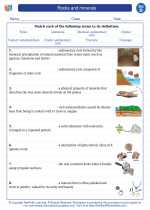
 Vocabulary/Answer key
Vocabulary/Answer key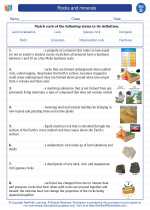
 Vocabulary/Answer key
Vocabulary/Answer key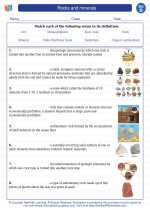
 Vocabulary/Answer key
Vocabulary/Answer key